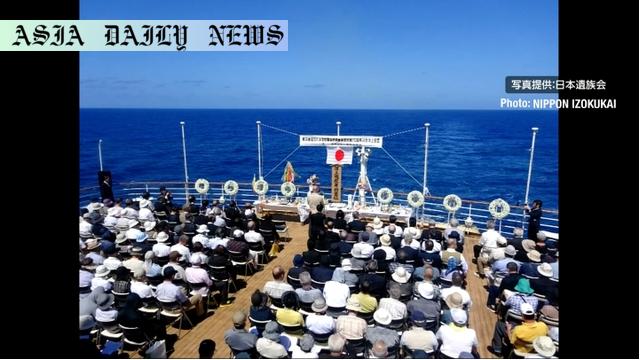war-bereaved families: A Japanese association concludes decades of overseas memorial visits, marking the end of an emotional tradition.

Closure to a Long-Held Tradition
A poignant chapter in Japan’s post-war history is coming to an emotional close as Nippon Izokukai, an association for war-bereaved families, conducts its final memorial voyage. Over the past three decades, the organization has passionately facilitated 451 trips to overseas battlefields, enabling over 16,000 grieving family members to honor their loved ones. The journeys were as much about paying respects to the war dead as they were a bridge toward fostering understanding and connection with local communities in countries such as China and the Philippines. However, as participants age, the practicality of continuing these voyages has diminished. The decision to end these trips is bittersweet, with the final voyage embarking from Kobe City, Japan, marking the end of a heartfelt era.
A Final Voyage of Remembrance
The last offshore memorial voyage, marking the 80th anniversary of the end of World War II, represents a deeply significant moment for the 218 participants from 42 Japanese prefectures. Aboard the vessel departing Kobe’s port, they offered silent prayers during a heartfelt ceremony held before departure. The silence carried profound emotions, as the group united in collective memory for the millions who perished during one of humanity’s most devastating conflicts. The journey will take participants to the sites of historic battles and shipwrecks, such as the resting places of the battleships Yamato and Musashi. This initiative is not just a tribute to the war victims but also a powerful reminder of the sacrifices and consequences of war.
The Magnitude of Loss and Unrecovered Remains
The scope of loss during World War II is staggering, with over 2.4 million Japanese lives lost overseas, out of which 300,000 remains are yet to be recovered from the oceans. As time passes, the search for these remains and the continuation of memorials becomes an increasingly formidable endeavor. Nippon Izokukai’s efforts in organizing these emotional pilgrimages have been instrumental in giving families a sense of closure. Even though the initiative is now set to end, the legacy of remembrance and honoring those lost resonates deeply within the collective Japanese consciousness.
Honoring the Past While Confronting the Future
As this chapter closes, it provides an opportunity to reflect on the importance of such memorials for fostering peace, reconciliation, and historical awareness. The war-bereaved families who participated in these trips forged strong bonds with each other as well as with local communities across the regions they visited. Beyond paying tribute to the victims, these memorials have served as a bridge, helping to heal wounds and build connections between former adversaries. Although the trips are concluding, the values of remembrance, peace, and reconciliation they represent must continue to guide future generations toward a more empathetic and united world.
Conclusion
The final offshore memorial voyage by Nippon Izokukai serves as a profound farewell to an era marked by grief, remembrance, and reconciliation. It highlights the enduring impact of collective memory and the emotional bonds forged in the wake of unimaginable loss. Moving forward, it is essential to uphold the lessons of history and continue to honor those who sacrificed their lives for their countries. This poignant farewell underscores the importance of acknowledging the past to create a harmonious and enlightened future.
Commentary
Personal Reflections on Closure and Legacy
The decision by Nippon Izokukai to conclude its overseas memorial voyages heralds the end of an emotional and powerful tradition. For decades, these journeys have been a source of solace for families who never had the opportunity to properly grieve for their loved ones lost to the tragedy of World War II. For many participants, these voyages were not only about paying their respects but also about connecting to a part of history that shaped their lives and the identity of their nation. The closure of this initiative is a somber reminder of the passage of time and the need to preserve history through new means.
Remembering the Unrecovered
One of the most heart-wrenching aspects of World War II is the knowledge that hundreds of thousands of remains remain unrecovered. It is a sobering thought that so many families have lived without the closure of being able to hold funerals or visit gravesites. The efforts of Nippon Izokukai to enable families to honor these lost souls, even symbolically, are both commendable and profoundly moving. However, with the conclusion of these memorials, one wonders whether future initiatives can be developed to continue the search or commemorate the unrecovered war dead in meaningful ways.
The End of a Tradition as a New Chapter
As this memorial tradition ends, it also opens a new chapter of responsibility for future generations. While time will inevitably erase the firsthand pain felt by the survivors and their families, the lessons and memories of that era must persist. Programs in education, cultural exchange, and diplomacy can continue to build on the spirit of reconciliation that these memorials fostered. It is crucial to ensure that the sacrifices of the past are not forgotten as we focus on building a peaceful future.
In Honor of Peace and Reconciliation
This final voyage represents much more than a tribute to the past; it stands as a beacon calling for ongoing harmony and understanding between nations. It is my hope that the values symbolized by memorials such as these will inspire future generations to embrace peace and unity. Ultimately, while the voyages may be ending, the mission of remembrance and the pursuit of peace they represent must endure.


